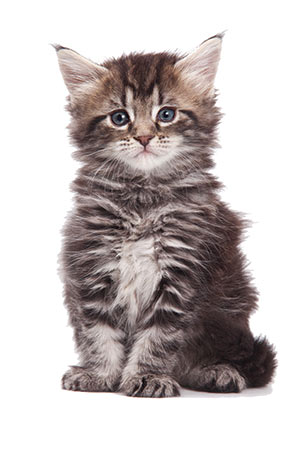Quiz – Pet Carriers
Zoos are fun, but zoonoses aren’t. That’s the technical term for infectious diseases passed from animals to people. And while your Mr. Fluffles may be the cleanest cat in the neighborhood, he can still carry some of these infectious germs in his fur, feces, or in some pesky fleas that he just scratched off onto your floor. Many of these conditions are simply nuisances, but some can be very dangerous to pregnant women or people with weakened immune systems. Take our quiz to learn more:
1. Which common pet can carry more than 60 infectious conditions through bacteria, viruses, parasites or fungi?

A. Dogs
B. Hamsters
C. Cats
D. Parakeets
2. Pregnant women should not clean litter boxes or go near cat feces at all.
A. True
B. False
3. From which pet can children catch head lice?
A. Cats
B. Pet birds
C. Dogs
D. None of the above
4. The viral disease of rabies remains one of the biggest problems for dog owners in the U.S.
A, True
B. False
5. A bald patch on the scalp of a cat or dog, or a circular rash on its skin, can cause someone who snuggles that pet to get _____.

A. Hantavirus
B. Distemper
C. Hookworm
D. Ringworm
6. Simply washing your hands after touching a pet can make a big difference.
A. True
B. False
1. C. Cats. Most of the germs they carry can only be spread to people through a bite or scratch, or contact with the animal’s waste.
2. A. True. A common parasite in cat feces is called Toxoplasma gondii. If a pregnant woman somehow gets infected with the parasite, they can transfer that infection to the fetus. Toxoplasmosis can result in mental disabilities and eye problems in infants.

3. D. None of the above. Animals do carry other types of animal lice, but head lice only spread from human to human. Typically, children who play together or share personal items such as hats or brushes spread head lice to each other.
4. B. False. Dogs are legally required to be vaccinated against rabies, and most dog owners have been shown to obey the law. Dog-linked rabies in the U.S. is now rare.
5. D. Ringworm. Despite its name, ringworm is not caused by a worm. It is a fungal infection that causes irritation to the scalp or skin. The treatment is a skin cream or oral medicine that kills the fungus.
6. A. True. Pets are family, so it may seem odd to wash your hands after giving them affection. But it will help lower the chances of their germs spreading to you. Definitely wash your hands after handling your pet’s food, bowls, crate or litter box. Also, for both you and your pet’s sake, schedule regular checkups and routine vaccinations with a veterinarian.
Source: The Health Library